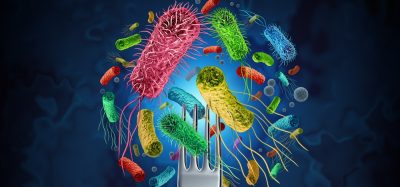The next mile: breaking barriers in food safety
Posted: 6 May 2025 | Dr Darin Detwiler | No comments yet
Despite decades of innovation in science and technology, food safety outcomes remain stagnant. Dr. Darin Detwiler calls for a shift not in tools, but in belief—the kind of belief that breaks barriers and redefines what’s possible.


We often imagine progress in food safety will come from better tools or more advanced systems. But real progress often begins with something far more fundamental: belief—the refusal to accept the limits others take for granted.
On May 6, 1954, Roger Bannister—a British medical student and amateur runner—took his place at the starting line at Oxford’s Iffley Road Track. For decades, running a mile in under four minutes was considered impossible. Coaches said the human body simply wasn’t built for it. Doctors warned it could stop the heart.
Once someone breaks a barrier, the rest of the world starts to believe it can be done.
But Bannister believed otherwise. With conviction and a plan that defied conventional wisdom, he crossed the finish line in 3 minutes, 59.4 seconds, breaking the four-minute mile barrier.
Just forty-six days later, another runner did the same. Then another. And another.
Because once someone breaks a barrier, the rest of the world starts to believe it can be done.
In food safety, we have our own four-minute mile—a barrier that has stood far too long.
Despite decades of scientific and technological progress, our public health outcomes remain stubbornly unchanged. In the US, the CDC estimates for foodborne diseases have barely shifted in over 30 years. What we lack is not science, but the will to act decisively.
- In the United States, the CDC’s estimates have remained virtually unchanged for over three decades: 48 million illnesses, 128,000 hospitalisations, and 3,000 deaths every year due to foodborne disease.
- In the European Union, the EFSA reports more than 350,000 confirmed cases and 2,500 outbreaks annually—numbers that almost certainly underrepresent the true burden due to underreporting.
- Globally, the World Health Organization estimates that unsafe food causes 600 million illnesses and 420,000 deaths each year, one third of them children under five.
These are not just data points. They represent birthdays missed, hospital beds filled, and families forever changed by preventable failures.
Despite improved tools and systems, the barrier remains. Like Bannister’s mile, our limits today aren’t just technical, they’re perceptual. We’re not waiting for a better test or a newer law—we’re waiting for someone to believe that these numbers can and must change.
This food safety barrier persists not because we lack the tools, but because many have grown too comfortable with outcomes that should be unacceptable.
That belief—that refusal to accept the unacceptable—is where real progress begins.
Belief, in this context, isn’t just optimism. It’s the moral clarity to say these numbers are unacceptable, and the refusal to normalise harm. It’s the active decision to disrupt a status quo that quietly allows preventable tragedies to persist.
The food safety parallel
In my last article, The Unexpected Mile, I wrote that in food safety, it’s not panic that saves lives—it’s preparation. But even the most thorough preparation can only take us so far unless it’s fueled by belief: belief that progress is possible, and that the status quo is not an endpoint, but a challenge.
This food safety barrier persists not because we lack the tools, but because many have grown too comfortable with outcomes that should be unacceptable.
Food safety has reached a point of complacent endurance. We track, we test, we respond. But we’ve yet to break through. We’ve yet to say, “We will not live with these numbers.”
What’s needed now isn’t just more data. It’s more determination—the kind that moved Bannister from belief to action. The kind that proves a system can go further if someone is willing to go first.
The power of going first
Roger Bannister didn’t wait for perfect conditions. He didn’t wait for consensus or permission. He simply decided that the barrier in front of him no longer deserved to stand.
That same mindset is what food safety needs now.
Because the breakthroughs we need won’t come from checklists or compliance reports. They won’t come from waiting for the next law, the next regulation, or the next crisis. Whether in government, business, or science, those with the power to shift standards must now become those who don’t wait for consumers to get sick—but build systems to ensure they never do. Those who choose to say:
“We are no longer comfortable with these numbers.”
“We will not wait for tragedy to be the spark.”
“We believe we can do better—starting now.”
And belief is contagious. When even one individual or institution chooses to act boldly—to go further than what’s required—it sends a message: this barrier CAN be broken.
Yes, there will be hesitation. Some will say, “It’s too expensive,” or “What if it affects the bottom line?” But the truth is, the cost of inaction is far higher.
When a child dies from contaminated food, when a family’s trust in what they eat is shattered by a preventable failure—that’s not just a regulatory breakdown. That’s a moral one.
And history has shown us: those who invest in doing the right thing…especially when it’s hard—are the ones who lead their field, define the standard, and earn the trust of the people they serve.
Progress requires courage
Progress doesn’t happen on its own. It asks something of us. It asks for clarity, for conviction—and above all, for courage.
Courage to challenge what’s become routine.
Courage to push beyond what’s merely compliant.
Courage to believe that better is not only possible, but necessary.
Because belief isn’t abstract. It’s what turns regulators into reformers. It’s what moves inspectors from documenting risk to preventing harm. It’s what drives CEOs to prioritise prevention over crisis control.
And it’s what gives grieving families the strength to keep fighting—for a system that honors the lives already lost by protecting the ones still at risk.
Over more than three decades, I’ve seen the full landscape of this system. I’ve taught future leaders. I’ve collaborated with scientists and worked alongside regulators. I’ve advised companies who are ready to raise their standards. And I’ve sat across from parents who buried their children because of food that was supposed to nourish, not harm.
If there’s one truth that echoes across those experiences, it’s this: we are not short on intelligence. We are not short on tools. But we are running short on urgency.
And the longer we let this gap persist, the longer we treat these numbers as inevitable—the more we fail the very people this system is meant to protect.
Leadership Is the willingness to go first
Progress isn’t born from comfort. It’s born from conviction—the kind that says, even if we haven’t done it yet, we can.
History reminds us that when people come together around a common cause, when they choose courage over convenience, and when they act on the belief that change is possible, they don’t just improve the system—they transform it. We have the science. We have the tools. We have the heroes already working quietly, persistently, and often without recognition.
What we need now is belief… belief that is shared, determined, and unapologetic.
Belief that we can shift these statistics.
Belief that we can build a food system where safety is not a privilege—but a promise.
Belief that we owe more to the families who suffer most when we fail to act.
Because the longer we hesitate, the more those families—our children, our elders, our pregnant, and our immuno-compromised—continue to carry the burden of inaction.
Today, food safety remains stuck behind its own four-minute mile. And the only thing holding us back is the belief that it can’t be broken.
But it can. And it starts with someone deciding it must.
The next mile
Even a one percent reduction in foodborne illness would be more than a data point. It would mean hospital beds left empty… a classroom of children still here… families spared the unimaginable.
That’s not just progress, that’s responsibility. That’s leadership. That’s how trust is rebuilt—not with press releases, but with decisions that save lives. Do not wait for someone else to go first.
Be the ones who believe.
Be the ones who go further.
Be the ones who break this barrier.
Roger Bannister redefined what the body could do. Now it’s our turn…to redefine what our food system MUST do.
Because every step forward brings us closer to a food system where safety isn’t just expected: it’s guaranteed.
About the author


Dr. Darin Detwiler — Distinguished Global Fellow in Food System Integrity, New Food Magazine
Dr. Darin Detwiler is a globally recognised authority on food safety and system integrity, with over 30 years of leadership influencing policy, guiding multinational companies, advancing food safety, and helping build a future grounded in integrity, transparency, and trust.
A professor and author of Food Safety: Past, Present, and Predictions, he is a sought-after keynote speaker at international summits, industry forums, and regulatory panels. He appears in the Emmy Award–winning Netflix documentary Poisoned: The Dirty Truth About Your Food, a film that continues to drive worldwide dialogue on accountability and consumer protection.









